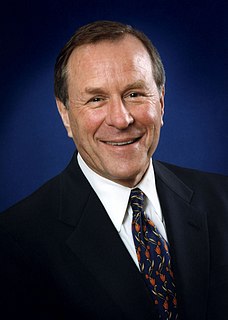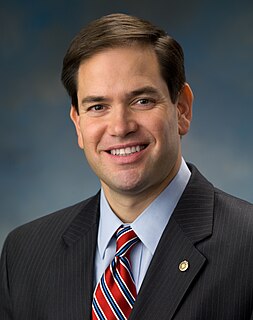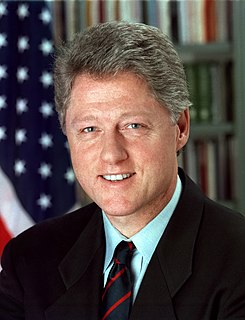
United States gubernatorial elections were held on November 7, 2006 in 36 states and two territories.

William "Bill" McBride was an American lawyer and politician.

The 2006 Florida gubernatorial election took place on November 7, 2006. Governor Jeb Bush was term-limited, and could not run for re-election. Then Republican Charlie Crist, the state's Attorney General, won the election. The election was notable in that for the first time, the state elected a Republican governor in three consecutive elections.

United States gubernatorial elections were held in October and November 2007 in three states. The final results were a net change of zero among the parties, with one Republican pickup and one Democratic pickup balancing each other out.

The 1998 Texas gubernatorial election was held on November 3, 1998 to elect the Governor of Texas. Incumbent Republican Governor George W. Bush was re-elected in a landslide over 4-term Democrat Texas Land Commissioner Garry Mauro, winning 68% of the vote to Mauro's 31%. Bush's 37% margin of victory was the largest won by any candidate since 1966 and is, to date, the largest ever won by a Republican candidate.
The election to choose a representative for the 9th Congressional District of Florida was held on November 7, 2006. Gus Bilirakis, the Republican son of retiring incumbent Republican, Mike Bilirakis, defeated Democratic candidate and former Hillsborough County Commissioner Phyllis Busansky. Gus Bilirakis will serve from January 2007 through January 2009.

The Missouri gubernatorial election, 2008 was an election for the Governor of Missouri, held on November 4, 2008. The incumbent governor, Matt Blunt, who had decided to retire, narrowly won the 2004 election by beating state auditor Claire McCaskill 51%-48%, and would likely have faced a strong challenger in 2008.

The 2004 Indiana gubernatorial election took place on November 2, 2004, to elect the Governor of Indiana.

The 2003 Mississippi gubernatorial election took place on November 4, 2003 to elect the governor of the U.S. state of Mississippi. Former Republican National Committee chairman Haley Barbour defeated incumbent Democrat Ronnie Musgrove by a margin of roughly 7 percentage points.

The Kentucky gubernatorial election, 2003 was held to elect the Governor of Kentucky on November 4, 2003. Republican candidate Ernie Fletcher defeated Democrat Ben Chandler and became the first Republican governor of Kentucky in 32 years.
The 2008 congressional elections in Virginia were held on November 4, 2008 to determine who would represent the Commonwealth of Virginia in the United States House of Representatives, coinciding with the presidential and senatorial elections. Representatives are elected for two-year terms; those elected will serve in the 111th Congress from January 3, 2009 until January 3, 2011.

The 2002 Oregon gubernatorial election took place on November 5, 2002. Incumbent Democratic Governor of Oregon John Kitzhaber was unable to seek a third consecutive term as governor, therefore creating an open seat. To replace him, former Oregon Supreme Court Associate Justice Ted Kulongoski won a crowded and competitive Democratic primary, while former State Representative Kevin Mannix emerged from an equally competitive Republican primary. The campaign between Kulongoski and Mannix, who were joined by Libertarian nominee Tom Cox, was close and went down to the wire. Ultimately, Kulongoski eked out a narrow margin of victory over Mannix, which was slightly smaller than Cox's total vote share, allowing Kulongoski to win what would be the first of two terms as governor.

The 2002 Alaska gubernatorial election took place on November 5, 2002 for the post of Governor of Alaska. Republican U.S. Senator Frank Murkowski defeated Democratic Lieutenant Governor Fran Ulmer. Murkowski became the first Republican elected governor of Alaska since Jay Hammond in 1978.

The 2008 United States presidential election in Florida took place on November 4, 2008, and was part of the 2008 United States presidential election. Voters chose 27 representatives, or electors to the Electoral College, who voted for president and vice president.

The 2010 Florida gubernatorial election took place on November 2, 2010. Republican-turned-Independent incumbent Governor Charlie Crist chose not to run for a second term. He instead ran (unsuccessfully) for the Senate seat vacated by Mel Martínez. This resulted in an open race for Governor of Florida in which Republican Rick Scott narrowly defeated Democrat Alex Sink.

The 1994 Florida gubernatorial election was held on November 8, 1994. Incumbent governor Lawton Chiles, a Democrat, survived a strong challenge from businessman Jeb Bush, a Republican, to win re-election. This race was the second-closest gubernatorial election in Florida history since Reconstruction due to the strong Republican wave of 1994.

The 1998 Florida Gubernatorial Election was held on November 3, 1998 to determine the Governor for the State of Florida. Two-term Democratic incumbent Governor Lawton Chiles was term-limited and could not run for re-election. John Ellis "Jeb" Bush, who had previously run for governor in 1994 was the Republican nominee, and incumbent Lieutenant Governor Kenneth Hood "Buddy" MacKay was the Democratic nominee. Bush defeated MacKay by nearly 11% of the vote, and won his first of two terms as governor.

The 2016 Republican Party presidential primaries and caucuses were a series of electoral contests taking place within all 50 U.S. states, the District of Columbia, and five U.S. territories, occurring between February 1 and June 7. Sanctioned by the Republican Party, these elections are designed to select the 2,472 delegates to send to the Republican National Convention, who selected the Republican Party's nominee for President of the United States in the 2016 election, Donald Trump. The delegates also approved the party platform and vice-presidential nominee.

The 1998 Arkansas gubernatorial election took place on November 3, 1998 for the post of Governor of Arkansas. Incumbent Republican governor Mike Huckabee defeated Democratic nominee Bill Bristow to win a full term in office.






























